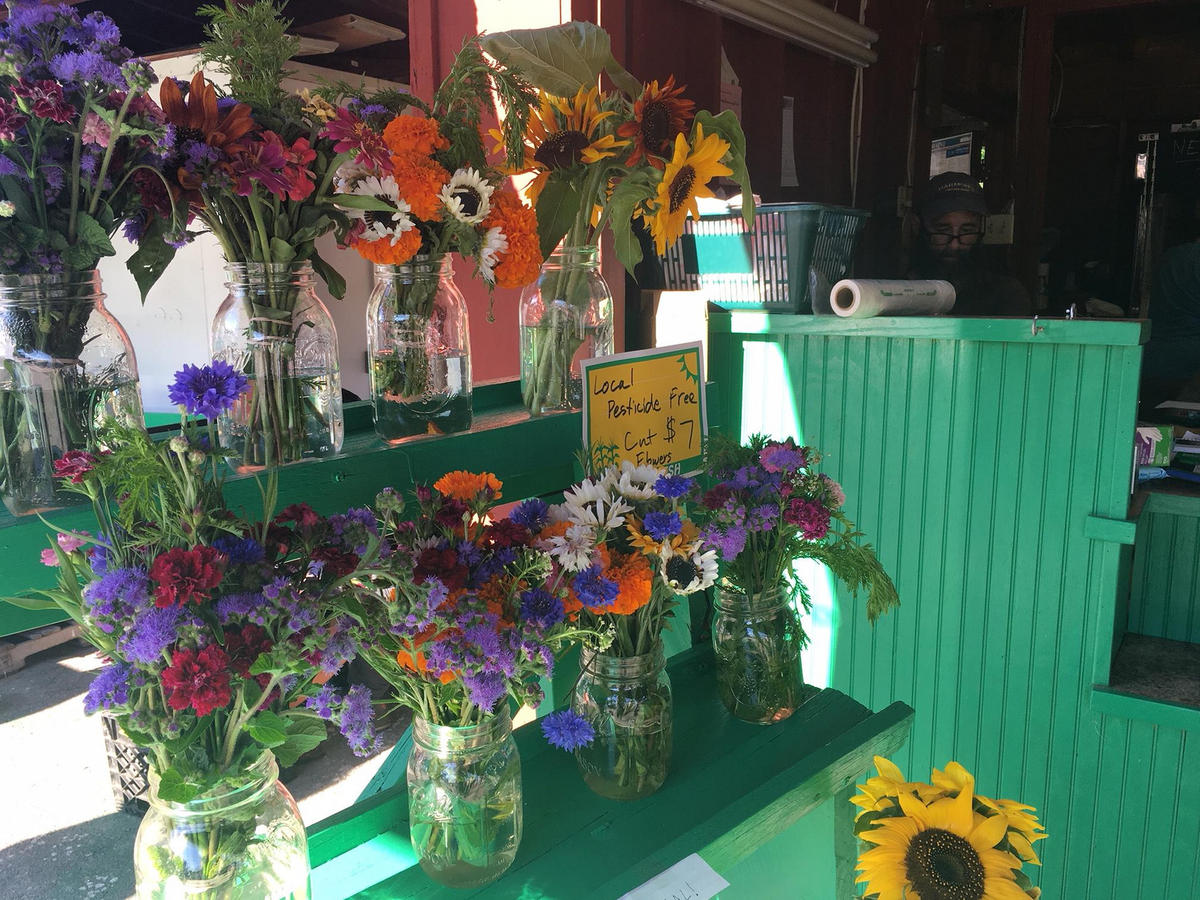Seynab Ali, Batula Ismail, Jabril Abdi, Mohamed Abukar
The first Somali-owned farm stand opened this week in Lewiston.
Two cooperative farms joined together to open the produce stand, which will also feature a food truck that serves Somali cuisine. The hope is that the new business at 996 Sabattus Street will help the farmers build capital and foster connection with the wider community.
Standing in front of crates filled with ruby red radishes and golden squash, owners and supporters of the New Roots Cooperative Farm Stand took a moment to bless the new business with a prayer. Then, scissors sliced through a thin green ribbon to officially open it.
Ten Somali Bantu farmers — four from New Roots farm in Lewiston and six from Isukan farm in Lisbon — banded together to open the produce stand formerly owned by an area farmer who passed away last winter.
"So this farm stand was owned by Blackies,” says Jonah Fertig-Burd, from the Cooperative Development Institute in Massachusetts. “It was for many years owned by them, and now it's really significant that it’s being taken over by Somali Bantu farmers, who are really emerging farmers in this area."
The Cooperative Development Institute has helped the co-ops form and grow over the past few years. Until now, farmers like Seynab Ali of New Roots sold produce largely through farmers markets or wholesale accounts to restaurants, food pantries and schools.

Speaking through an interpreter, Ali says she's eager to share her crops more widely.
"All of our produce has no chemicals and pesticides on it,” says Ali. “We use our own strength to cultivate the land with our hands, and it’s fresh."
That fresh produce will also make its way into a food truck that will have its home base at the farm stand. The truck was purchased just this week, but it will soon serve up classic Somali dishes like sambusas: fried triangles of dough stuffed with meat and vegetables.
"This is a message we wanted to reach across the United States and all immigrants – we're telling them, you can do something,” says Mohamed Dekow, the executive director of the Lewiston-based Sustainable Livelihoods Relief Organization.
The Sustainable Livelihoods Relief Organization helps Somalis use their farming skills to integrate into the local economy. Dekow says the launch of both the food truck and the farm stand were possible because the two co-op farms partnered together.
"This is kind of things you can do,” he says, “Not only a food truck. You can own a shop as a co-op. Not individually. If you put your literal knowledge and your literal efforts together with someone else, this is what can come."
If opening day is any indication, customers will come as well.
Shirley Govindasamy of Lewiston filled her shopping bag with corn, onions and tomatoes.
"I have friends who are in the Somali Bantu community, and this is what they want to do, more so than working in manufacturing or something, so I want to be supportive of what is helpful and pleasant for the community."
Diana Twombley drove down from Pittson to support what she sees as a different way to help new Mainers integrate.
"I think we think of integration for immigrants as learning English and assimilating to the culture, but this is a way they can be empowered and give back and be a part of the community," Twombley says.
That's what one member of the Somali community says is most important. As he observed the multicultural crowd of supporters, he said, “this is what we wanted."
https://www.mainepublic.org/post/first-somali-owned-farm-stand-opens-lewiston
